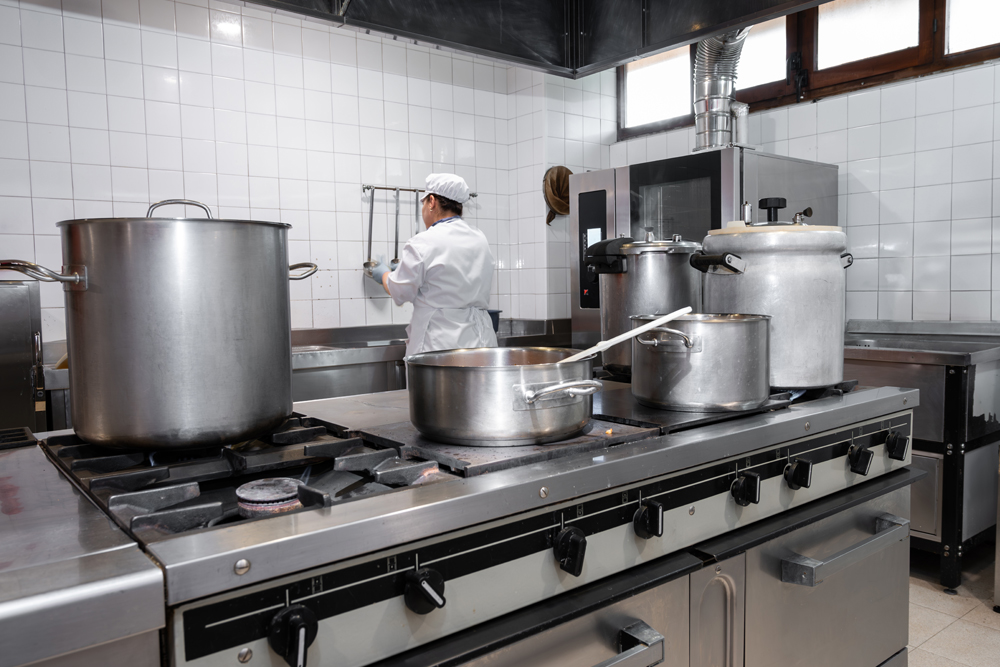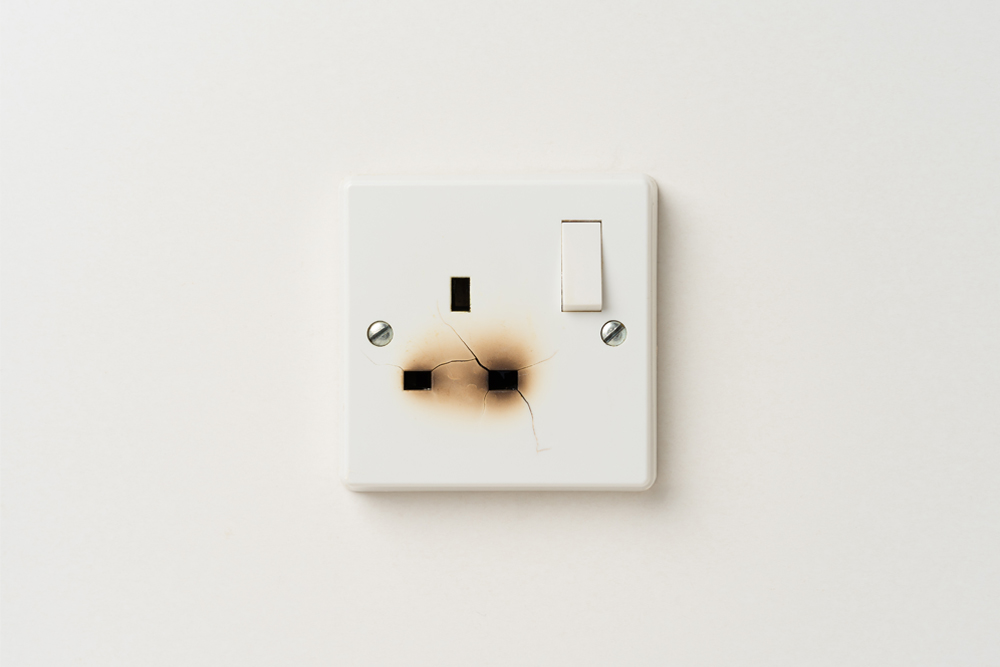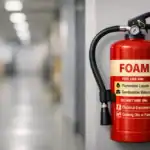
Fires can be devastating for the hospitality industry. Hotels, restaurants and pubs are some of the most vulnerable types of buildings. Busy kitchens, complex electrical systems and a steady stream of high-spirited guests are all significant fire risks. Not to mention, many buildings were built hundreds of years before fire safety regulations existed.
In this blog, we’ll explore the three main causes of fire in the hospitality industry. Understanding how fires start is essential for preventing incidents and protecting your premises and everyone in it.
Key Takeaways
- Cooking equipment is the most common cause of fires in hospitality settings, making regular cleaning and staff training essential.
- Electrical equipment can be a major fire risk if not properly maintained, so regular inspections and testing are crucial.
- Smoking and open flames pose a serious fire hazard, so clear policies and proper monitoring are vital.
- Every hospitality business must conduct a fire risk assessment to identify and manage specific fire hazards.
- Fire safety training is essential to ensure staff know how to handle fire risks and respond effectively in an emergency.
Why It’s Important to Know the Main Causes of Fire in the Hospitality Industry
Hospitality businesses need to operate at or near full capacity to turn a profit. So, any incidents that put customers at risk or force a shutdown can be devastating.
In the last year for which statistics were available, 1,917 fires were recorded in the hospitality industry. The majority of these fires happened in food and drink businesses, with 1,330 recorded incidents. The remaining 587 fires occurred in hotels, hostels and boarding houses.
These fires resulted in 213 non-fatal injuries and, sadly, 4 fatalities.
Understanding how these fires start is essential for preventing them and keeping your premises, staff and customers safe.
The 3 Main Causes of Fire in the Hospitality Industry
Out of the 1,917 recorded fires last year, 1,608 were accidental, while only 309 were deliberate.
These figures highlight that accidental fires pose a much greater risk to your business than arson. Unsurprisingly, the three main causes of fires in the hospitality industry are the result of everyday activities.
These are:
- Cooking equipment
- Electrical faults
- Smoking or open flames
Understanding these risks is the key to preventing accidents and protecting your premises.
Fire Safety Training
Our Fire Safety Training course gives a basic understanding of fire prevention principles, the sources of ignition and fuel and safe systems of work to prevent fire hazards and accidents within the work environment.
1. Kitchens and Cooking Equipment
Cooking is the most common cause of fires in the hospitality industry, particularly in restaurants and hotels.
High temperatures, open flames and flammable cooking oils make kitchens a high-risk environment.
Fires can start due to unattended cooking, grease build-up or faulty equipment. Deep-fat fryers, grills and stovetops are especially prone to causing fires when left unsupervised or improperly cleaned.
And given the fast-paced nature of professional kitchens, a small flame can quickly turn into a major fire if staff aren’t cautious.
To reduce this risk, you should:
- Ensure regular cleaning of cooking areas and equipment to prevent grease build-up.
- Train staff on fire safety procedures, including how to handle cooking oil safely.
- Install and maintain firefighting equipment designed to tackle cooking oil fires, such as wet chemical extinguishers and fire blankets.

2. Electrical Equipment and Wiring
Electrical equipment is another leading cause of fires in the hospitality industry. Hotels, restaurants and pubs rely on a wide range of electrical appliances, from kitchen equipment to entertainment systems.
Common issues include overheating, damaged cables and overloading sockets. This last issue is particularly common since hospitality businesses rely on high-powered equipment like refrigerators, ovens and heaters, sometimes running on decades-old electrical systems.
To reduce the risk of electrical fires, you should:
- Conduct regular Portable Appliance Testing (PAT) to ensure all equipment is safe to use.
- Ensure that high-powered appliances are plugged directly into wall sockets instead of extension leads.
- Train staff to visually inspect electrical appliances and sockets before use.

3. Smoking and Open Flames
Smoking and open flames are the third most significant cause of fires in the hospitality industry.
Many customers visit hotels, pubs and restaurants to relax and enjoy themselves, which means they’re more likely to ignore smoking policies – especially if they’ve had a drink. This lax attitude can lead to the careless disposal of cigarette butts or illicit smoking in areas where it’s banned, such as hotel rooms.
Candles, outdoor heaters and other open flames also present risks. And these risks are much more significant when these sources of heat are left unattended or placed too close to flammable materials like tablecloths, curtains or upholstery. (You should be particularly wary of overcrowded tables.)
To manage this risk, hospitality businesses should:
- Clearly display no-smoking signs and provide designated smoking areas with proper disposal bins.
- Train staff to monitor for smoking in prohibited areas and intervene when necessary.
- Ensure candles and other open flames are kept away from flammable items and are extinguished before staff leave.

The Importance of Fire Risk Assessments
Although there are common causes, every hospitality business faces unique fire hazards. To identify and manage these hazards, every business must conduct a fire risk assessment as required by the Regulatory Reform (Fire Safety) Order 2005.
This assessment helps pinpoint potential fire sources and determine the necessary fire precautions. This includes both active measures like fire extinguishers and passive fireproofing strategies such as installing fire doors.
But fire risks aren’t static – they can change daily depending on how busy your business is or the sort of events you’re hosting. So, the Fire Safety Order also requires regular fire safety training for your staff. By staying aware of fire hazards and control measures, your team can consistently manage fire risks and help ensure a safe evacuation in an emergency.
Fire Awareness Training
Everyone in your business must have a solid understanding of fire safety, which is why general fire awareness training is crucial for all staff members.
Our online Fire Awareness Training course is designed to provide employees with the knowledge they need to identify fire hazards, understand fire prevention measures and respond correctly in an emergency. The course is suitable for businesses of all types and ensures your team is well-prepared to handle fire risks, no matter the industry.





















